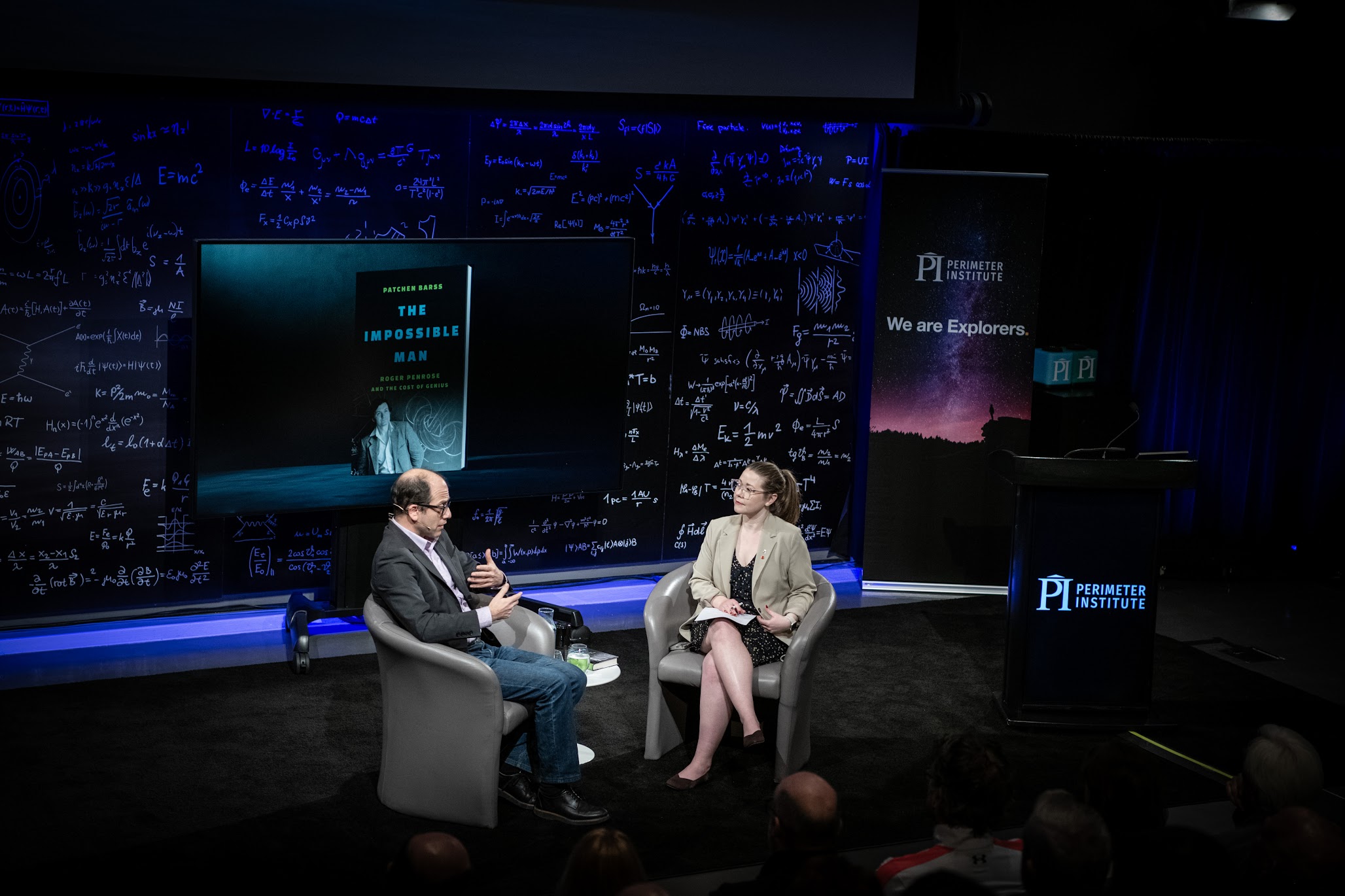An interview with Dr Gabriella Kelly-Davies on her excellent podcast, Biographers in Conversation. Gabriella asked insightful questions about the choices I made writing The Impossible Man, and about what makes a life sufficiently unusual to make a biography worth writing, and sufficiently universal to make it worth reading.
News & Reviews
Unexpected Simplicity
I joined physicist Emily Petroff at the Perimeter Institute for Theoretical Physics for a conversation about mathematics, cosmology, and mortality, and about the strange ways that seemingly intractable problems can suddenly reveal simple, beautiful solutions.
The genius physicist whose work was inspired by Escher
“Barss captures the mathematician – still working at age 93 – in his own, real world, and shows that while maths may well have an independent existence from the physical universe, it is practised by people. People with families, frustrations, triumphs and tragedies. And he does it brilliantly.”
Solving the big puzzles
By Jenann T. Ismael, Times Literary Supplement
“Barss is good at conveying his subject’s very particular talents: the geometric imagination, the scope and beauty of the work, and the almost magical ability to turn what seems to be an impossible problem into something simple and directly visualizeable.”
Briefly noted
“In this elegant biography, Barss vividly evokes Penrose’s geometric sensibility and his quest to prove that a geometrically perfect world lies hidden behind everyday reality.”
The Needy Genius Who Understood the Cosmos (People, Not So Much)
By Jennifer Szalai, The New York Times
November 13, 2024
“Space-time is out there,” a young Penrose told one of his teachers. “And I am exploring it with my life.” Barss sees the beauty in this notion while also registering Penrose’s habit of invoking the universe to escape accountability. This biography depicts Sir Roger in multiple dimensions; only a writer as psychologically astute as Barss could show us an impossible man in full.”
When Life Just Doesn’t Add Up
By Julian Baggini
“Mr. Penrose, it is clear, has a mind fit for physics, not for the messy world of human relations. He has struggled to understand how his relationship problems could be more difficult to solve than his scientific ones, treating the former as though they were as tractable and logical as the latter. As a biographer, Mr. Barss is willing to let his subject’s contradictions lie. Life, he notes, isn’t like some of Mr. Penrose’s geometric puzzles: “The moment never comes when the last piece clicks into place and the puzzle is complete.”
What is the price of genius, asks biography of Roger Penrose
By Chelsea Whyte
Many people still believe (and many scientists tell themselves) that genius is a solitary affair, that what they do is so important it merits exemption from everyday life and the obligations of intimate relationships.As his subtitle suggests, Patchen Barss doesn’t endorse this notion in The Impossible Man: Roger Penrose and the cost of genius, as he charts the life of one of the most influential physicists of the 20th century.
The heavy price of life as a physics genius
by Anjana Abuja
“As Toronto-based science journalist Patchen Barss shows in his beautifully composed and revealing biography The Impossible Man, Penrose’s exceptional talent for solving the hidden patterns and puzzles in the universe has long contrasted with his struggle to fit into the world of people.”
Superb insights into a flawed genius
(Starred Review) “One of the greatest physicists and mathematicians of the past century receives his first biography. Science journalist Barss, author of Flow Spin Flow: Looking for Patterns in Nature, does a fine job with a difficult subject.”
Publishers Weekly review
The Impossible Man: Roger Penrose and the Cost of Genius (Starred Review) “Science journalist Barss (The Erotic Engine) presents a penetrating, warts and all biography of Nobel Prize–winning physicist Roger Penrose. … The result is a haunting portrait of a brilliant scientist unwilling to confront his personal shortcomings.“











